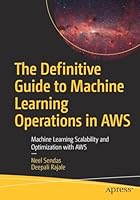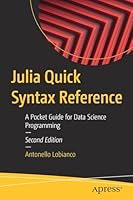
Kubernetes Cookbook, 2nd Edition
- Length: 554 pages
- Edition: 2nd Revised edition
- Language: English
- Publisher: Packt Publishing
- Publication Date: 2018-05-30
- ISBN-10: 1788837606
- ISBN-13: 9781788837606
- Sales Rank: #987990 (See Top 100 Books)
Learn how to automate and manage your containers and reduce the overall operation burden on your system.
Key Features
- Use containers to manage, scale and orchestrate apps in your organization
- Transform the latest concept of Kubernetes 1.10 into examples
- Expert techniques for orchestrating containers effectively
Book Description
Kubernetes is an open source orchestration platform to manage containers in a cluster environment. With Kubernetes, you can configure and deploy containerized applications easily. This book gives you a quick brush up on how Kubernetes works with containers, and an overview of main Kubernetes concepts, such as Pods, Deployments, Services and etc.
This book explains how to create Kubernetes clusters and run applications with proper authentication and authorization configurations. With real-world recipes, you’ll learn how to create high availability Kubernetes clusters on AWS, GCP and in on-premise datacenters with proper logging and monitoring setup. You’ll also learn some useful tips about how to build a continuous delivery pipeline for your application. Upon completion of this book, you will be able to use Kubernetes in production and will have a better understanding of how to manage containers using Kubernetes.
What you will learn
- Build your own container cluster
- Deploy and manage highly scalable, containerized applications with Kubernetes
- Build high-availability Kubernetes clusters
- Build a continuous delivery pipeline for your application
- Track metrics and logs for every container running in your cluster
- Streamline the way you deploy and manage your applications with large-scale container orchestration
Who This Book Is For
This book is for system administrators, developers, DevOps engineers, or any stakeholder who wants to understand how Kubernetes works using a recipe-based approach. Basic knowledge of Kubernetes and Containers is required.
Table of Contents
- Building your own Kubernetes Cluster
- Walking though Kubernetes concepts
- Playing with containers
- Building high availability cluster
- Building continuous delivery pipeline
- Building Kubernetes on AWS
- Building Kubernetes on GCP
- Advanced cluster administration
- Logging and monitoring







